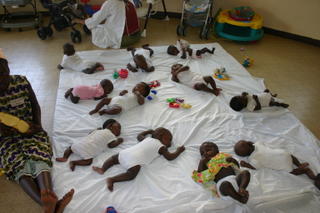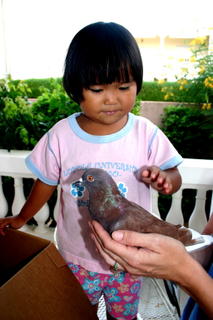Elle est malade
The sicknesses here are different from at home. While at home, I’m content to weather most any sickness on my own, I’ll rush downtown to the embassy nurse for any strange symptom. Diarrea could be cholera, a fever could be la pluie. “Malaria” could be very serious, and because of the more rainy than usual rainy season, very prevalent. I’ve rushed with Allison once to find that her bloody stool was beets from dinner the night before. I’ve been healthy so far, except for a sudden bout of puking and diarrea, so sudden, it caused me to pass out and to later pour over email descriptions of cholera. Today, Bronwyn’s home with a mysterious high fever. Yesterday we determined by blood test that it wasn’t malaria. We sit and wait with it to see which way it wants to go.
The sicknesses here are different from at home. While at home, I’m content to weather most any sickness on my own, I’ll rush downtown to the embassy nurse for any strange symptom. Diarrea could be cholera, a fever could be la pluie. “Malaria” could be very serious, and because of the more rainy than usual rainy season, very prevalent. I’ve rushed with Allison once to find that her bloody stool was beets from dinner the night before. I’ve been healthy so far, except for a sudden bout of puking and diarrea, so sudden, it caused me to pass out and to later pour over email descriptions of cholera. Today, Bronwyn’s home with a mysterious high fever. Yesterday we determined by blood test that it wasn’t malaria. We sit and wait with it to see which way it wants to go.


